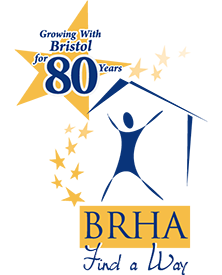As always, BRHA is continuing and committed to serving our residents and the Bristol community during this difficult time. Please reach out to us for any need, question, or concerns you and your family are facing. Our Resident Services staff can be reached at (276) 821-6270. Our main line is also available by calling (276) 642-2001.
If you are facing job loss or changes to your income, please reach out to us. You may also email us with income changes to this address: income_changes@brha.com
More than 46,000 suddenly unemployed workers in Virginia will face a stressful battery of bills with the turn of the month on Wednesday. Chief among them: rent.
“The biggest issue is some renters don’t know what to expect,” Christie Marra, the Virginia Poverty Law Center’s director of housing advocacy, said. “There’s no consistent rule saying, ‘Hey, stop issuing eviction notices, stop calling the sheriff to throw people out.’”
Some landlords are reaching out to tenants with the promise of payment plans and other consideration — an approach pushed by industry groups that they say is good for business and renters. Other landlords are not, instead sending firm reminders that rent is still due on April 1.
Eviction moratorium extended, but rent is still due
The Supreme Court of Virginia extended an emergency judicial order Friday that has had the effect of freezing eviction cases around the state. Aimed at preventing the spread of COVID-19 in courthouses, it had been set to expire April 6 but is now continued through at least April 26.
But while no eviction cases will be heard during that time period, rent is still due and landlords can still file lawsuits to begin the process of evicting tenants who don’t pay.
Once the judicial emergency ends, courts will begin hearing the cases, leaving some advocates concerned about a sudden surge in homelessness in the coming months.
“The problem is they’re piling up,” Marra says.
Some landlords offer payment plans, others don’t
A coalition of large landlords in Virginia is encouraging its members to work out payment plans with their tenants who have been suddenly been left jobless.
“We have asked all of our members to consider making accommodations wherever possible,” said Patrick McCloud, executive director of the Virginia Apartment Management Association.
He urged residents worried about how they will pay their bills to reach out to their landlords now to discuss their individual cases. “Without question, most of our members are on board, but again, I can not stress this enough, it really hinges on people being proactive. The further in advance we know, the more time we have to make those arrangements work.”
Some property managers are also proactively approaching their tenants to offer payment plans to people who can provide documentation showing a loss of income, for instance, a pay stub from a closed business or an application for unemployment benefits.
Community Housing Partners, which manages 84 properties containing 4,381 units in Virginia, says it’s suspended late fees and, instead of issuing late notices, will individually call tenants who don’t pay this month “to see if we can work with them,” said Micahel Sutphin, a spokesman for the Christiansburg-based nonprofit.
Next month, they’re planning to offer all their tenants a $25 rent reduction.
“So rent is still due, but we’ll certainly work individually with residents who have any concerns,” Sutphin said.
Other landlords have been less flexible. Several tenants who lost their jobs this month shared email correspondence from their landlords instructing them that rent was still due, regardless of their circumstances.
“She basically said we can certainly empathize, however you did sign a lease,” said Jo Rozycki, a senior at William & Mary who relied on two on-campus jobs to supplement her income.
Unemployment benefits begin to flow
So far, unemployment benefits have been the primary aid available to workers in Virginia. People who applied on March 16, when businesses began to close en masse, report that they received their first check Wednesday — about a week and a half later.
The benefits are small — a maximum of $380 a week in Virginia — but are set to substantially increase in the coming weeks.
The $2-trillion bailout passed by Congress and signed by President Donald Trump over the weekend offers an additional $600 a week for the next four months on top of the state benefits to which they were already entitled. That’s on top of the $1,200 check the government is cutting to most Americans.
The program has already been expanded to cover people who are unable to work because they’re sick, caring for a sick family member or providing childcare because of school closures.
The legislation also expands the program to include self-employed and gig workers, such as Uber and Lyft drivers.
Ned Oliver, a Lexington native, has a decade’s worth of experience in journalism, beginning at The News-Gazette in Lexington, and including stints at the Berkshire Eagle, in Berkshire County, Mass., and the Times-Dispatch and Style Weekly in Richmond. He also has the awards to show for it, including taking a pair of first-place honors at the Virginia Press Association awards earlier this year for investigative reporting and feature writing. He is a graduate of Bard College at Simon’s Rock, in Great Barrington, Mass. Contact him at noliver@virginiamercury.com
From Virginia Poverty Law Center:
These Know Your Rights materials were developed to help tenants understand what is happening with evictions during this public health crisis. To ensure that you receive all the information that this program sends out as quickly as possible, please sign up for email updates from Virginia Poverty Law Center at www.vplc.org.
COVID-19-EVICTION-FAQs-final COVID-19-Tenant-Rights_3.30 Hotel-Motel-Tenants-KYR-final Unlawful-Exclusion-Toolkit-VPLC-final
